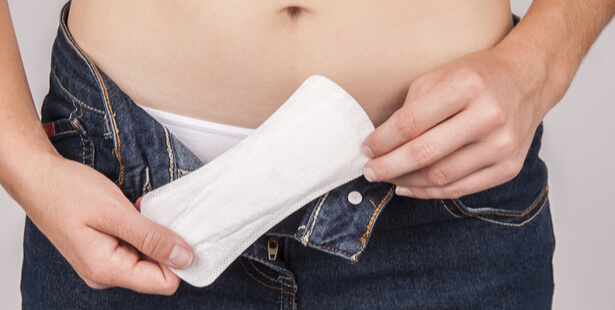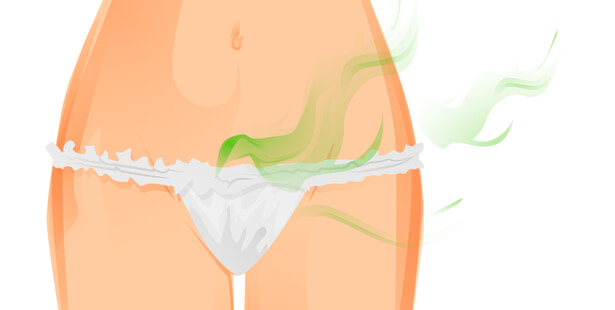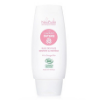When it comes to intimate hygiene, not everything is allowed. Indeed, certain practices can weaken the vulva but also the vaginal flora.
Vaginal detox, vaginal douche or even the use of intimate deodorants, there are many practices to supposedly stay clean and fresh. However, they are not without risks. Indeed, most of these methods will create imbalances in the vaginal flora and irritate the mucous membranes.
Intimate hygiene: practices to avoid
If good intimate hygiene is essential to feel good and avoid infections, it is not necessary to practice excessive hygiene. Indeed, certain actions can have harmful consequences on the balance of your vaginal flora.
Douching
First practice to be banned urgently: la vaginal douche ! Cleaning the inside of your vagina using the shower head or an enema bulb is useless and even strongly discouraged.
Intimate hygiene: what practices should be avoided? © UfaBizPhoto
Indeed, the vaginal flora is made up of lactobacilli – that is to say bacteria naturally present in the vagina, which prevent other bacteria from developing. It’s a bit like a natural cleaning system. By practicing vaginal douche, you risk damaging these lactobacilli and unbalancing your vaginal flora.
Result: infections, dryness and irritation may appear.
Daily wearing of panty liners
If worn every day, panty liners can cause irritation, allergies or even fungus.
This is a bad habit that you can definitely do without. If not, identify the days when you have the most vaginal discharge (often in the middle of the cycle then just before your period) to only wear it on those days.

Wearing a panty liner every day, a bad habit © Lukas Majercik
Choose washable panty linersbetter for your health and for the environment.
Vaginal detox
Vaginal detox has more and more fans, especially in the United States. The principle? Taking steam baths from herbal decoctions in order to offer a health cure to our vagina.
Praised by American celebrities like Gwyneth Paltrow, theA detox would eliminate toxins, but also alleviate painful periods or to fight against urinary infections. However, this practice is not recommended at all: the vagina does not need to be detoxified since it is capable of cleaning itself.
Another, more dangerous method consists of inserting sachets (yes sachets!) of medicinal herbs into the vagina. In addition to irritating your vagina, there is a risk of developing the famous toxic shock syndrome.
So, vaginal detox is a no!
The use of intimate deodorants
As incredible as it is, it is possible to find commercially available intimate deodorants. Even without alcohol and perfume, these products should be avoidedbecause they can, in addition to unbalancing your vaginal flora, trigger irritation, burning or irritation.
In case of persistent odors, better to consult a gynecologist or midwife, as this may be a sign of an infection.

In case of unpleasant odors, consult a specialist, but do not use deodorants © Kateriz
Wash yourself with a washcloth or shower flower
Washcloths and shower flowers are real breeding grounds for germs ! To wash yourself, choose a dermatological barthat is to say a soap-free soap or an intimate cleansing gel and apply it with your hands (provided you have ensured that they are very clean, of course).
This natural, sulfate-free cleansing gel can be used daily to take care of your privacy. Based on Aloe Vera to soften, sage to prevent discomfort and Calendula to soothe and protect mucous membranes.
To discover on Slow-cosmetique.com
Washing will be much gentler and healthier! Shower gels should be avoided, just like Marseille soap, too aggressive for the intimate area. If you do not have any particular problems or infections, one wash per day is more than enough. By washing too much, you risk weakening your mucous membranes.
Using natural products without any precautions
Also pay attention to natural products : lemon, essential oils, bicarbonate… Even if they have many benefits, their effectiveness in treating problems related to the vagina has never been demonstrated.
Lemon is, for its part, far too acidic: it risks unbalancing the PH of your vaginal flora and causing burns.
For your intimate hygiene, it is better to keep it simple: soap, water and nothing else ! Your vagina is not dirty and does not need excessive hygiene. However, if you suffer from itching or burning, do not hesitate to seek medical attention quickly.
Republished article
Banner illustration: Intimate hygiene: practices to be banned urgently – © Vagengeim
consoGlobe also recommends…
Source: www.consoglobe.com




